December 9, 2023
As mentioned in several podcasts throughout the year, I've recently come across what I believe to be the best book on cardiovascular health that I've ever read.
Before this point, my top book recommendation would have been Dr. Thomas Cowan's Human Heart, Cosmic Heart, ideally paired with a listen to my own big show on all the different ways to test, analyze, and medically quantify your heart health, which you can listen to in the episode titled “The Best Way To Test How Healthy Your Heart Is: Ben Greenfield Undergoes A Complete Advanced Cardiac Evaluation & Reports The Surprising Results!“
Anyway, this latest, groundbreaking book — Understanding the Heart: Surprising Insights Into the Evolutionary Origins of Heart Disease―and Why It Matters — is by the remarkable Dr. Stephen Hussey, MS, DC, a chiropractor, functional medicine practitioner, health coach, and speaker. He attained both his Doctorate of Chiropractic and Master of Science in human nutrition and functional medicine from the University of Western States in Portland, Oregon.
In addition to Understanding the Heart, Dr. Hussey is also the author of another excellent book on health and longevity titled The Health Evolution: Why Understanding Evolution Is the Key to Vibrant Health. Through his unique expertise, he guides clients from around the world back to health using ancestral wisdom and the latest research. In his downtime, Dr. Hussey likes to be outdoors, playing sports, reading, writing, and spending time with his wife and their pets.
During our show — which is a re-release of one of the most popular podcasts on cardiovascular health that I've ever recorded — you'll learn the fascinating history of heart disease, why the naked mole-rat is important in understanding heart health, where water, infrared light, aspirin, ketones, and other little-known heart health “hacks” fit in, and a BIG surprise toward the end of this two-part podcast series.
During this discussion, you'll discover:
-Stephen's morning heart routine…07:50
- Gratitude
- Podcast with Emily Fletcher on Meditation:
- Sauna
- Barefoot yard workout
- Study on the effect of gratitude on CV health
-The first-ever recorded incidences of heart disease…09:50
- CT scans of ancient Egyptian mummies showed evidence of heart disease
- Wheat and barley diet in Ancient Egypt
- Omega-6 ratio that's higher in wheat and barley causes insulin resistance
- Insulin resistance and atherosclerosis
- Ancient Arabia describes stories of heart attacks
- Guns, Germs and Steel by Jared Diamond
-What the naked mole-rat can teach you about heart health…15:20
- Evolution of reptiles and mammals
- The reptilian stress response system has one track called the dorsal motor nucleus
- Allows reptiles to shut organs down and lowers their metabolism
- Naked mole-rat has a combination of reptile and mammal traits: slow metabolisms and live in low oxygen levels
- If humans have an elongated shift in metabolism, heart health declines
- Mammals — vagus nerve split into two pathways: dorsal motor nucleus and nucleus ambiguous
- For humans, staying in a high-stress response creates inflammation, depresses metabolism, and has an impact on CV function
- Lack of vagal tone affects the electrical function of the heart
- Split vagus nerve in mammals is important because it balances parasympathetic and sympathetic systems
-How an imbalanced vagus nerve can impact the fuel of the heart…25:10
- Metabolic heart attacks
- 90% of people in America have some aspect of poor metabolic health
- An imbalance in the autonomic nervous system combined with a stressful event may lead to a CV event
- Cyclic adenosine monophosphate (cAMP): sympathetic cell
- Cyclic guanosine monophosphate (cGMP): parasympathetic cell
- We need nitric oxide for the cGMP cell to communicate with the heart cell
- High oxidative stress depletes nitric oxide
- In the absence of nitric oxide, the parasympathetic cell is delayed
- Cell delayed, then lactic acid build-up = muscle-burning
- Too much lactic acid in the heart causes it to beat faster
- Most organs, including the heart, prefer to burn fatty acids and ketones
- If a sympathetic signal reaches the heart, the heart is forced to burn more glucose than it wants to
- The build-up of lactic acid causes edema, negative pressure build-up, stagnant blood flow, reduced calcium absorption
- Calcium controls contraction
- Stagnant blood results in severe hypoxia and tissue death (organ shutdown)
- Reptiles and naked mole rats can withstand these things, but humans cannot
- Nitric oxide is kind of like Viagra for the body
- Ben's tips on increasing nitric oxide availability:
- Increase vagal nerve tone and monitor your heart rate variability (HRV)
- Nasal breathing
- Metabolic use of ketones vs. glucose
-The role of ketones in people with heart disease…37:00
- “Ketone Ester Treatment Improves Cardiac Function and Reduces Pathologic Remodeling in Preclinical Models of Heart Failure”
- Ketone Ester should be seriously considered for patients with heart failure
- Ketones are present if we're eating a whole foods diet and we're metabolically active
- Stephen believes the heart has first dibs on ketones and fatty acids
- The failing heart reprograms itself
- Ketones are the chief fuel for a normal heart
-Structured water and the role it plays in our bodies…42:15
- Water structured between solid and liquid states
- Exclusion zone water
- Albumin, the smallest protein in the bloodstream, is excluded from this exclusion zone
- The Fourth Phase of Water by Gerard Pollack
- BGF podcast with Gerald Pollack:
- Some water in the body is liquid, some is gel-like
- BGF podcast with Robert Slovak:
- “Water & Water Filtration: Everything You Need To Know About Water Filters, Alkaline Water, Structured Water, Hydrogen-Rich Water, Deuterium Depleted Water & Much More!”
- “Everything You Need To Know About How To Use Hydrogen Water: Timing, Dosing, Delivery Mechanisms, Hydrogen Tablets, Hydrogen Water Machines, Hydrogen Inhalers & Much More!”
- “Is “Drinkable” Seawater The Future Of Health Tonics?, How “Quinton” Works, Isotonic vs. Hypertonic & Much More With Water Researcher Robert Slovak.”
- BGF podcast with Tyler Lebaron:
- The lining of the artery has exclusion zone water
- Positive and negative charge in plants moves water upwards via water structuring, similar in humans
- Structured water protects the lining of the artery and creates flow
- Electronegatively charged areas with high oxidative stress could lead to the breakdown of structured water
- Break down of structured water = damaged arterial lining
- Insulin repairs, but if insulin resistance is present + oxidative stress = arterial damage
- Healing is Voltage by Jerry Tennant
- The Body Electric by Robert Becker
-How to enhance the efficacy of structured water in your body…53:30
- Podcast with Clint Ober:
- Energized water filters
- Infrared sauna
- Sunlight
- Sauna, heat, and cold
- Minerals
-Why it's incorrect to think of the heart as a pump…57:30
- The heart is not a forceful pressure pump, blood can flow on its own
- The heart does some pumping but only to move the blood through the heart
- The heart is like a hydraulic ram; flow-activated
- The heart acts as a vortexer and swirls blood around
- Heart muscle contraction facilitates the swirling
- Another important role of the heart:
- The heart is better at slowing the flow of blood
- Speed of flow is based on energy demand of tissues
- The heart slows blood flow down to vortex it and prevent tissue collapse
- Endurance athletes have more muscular hearts (cardiac hypertrophy or athlete's heart)
-Heart failure summarized…1:05:45
- Change in the shape of the heart due to scarring
- Poor fuel source
- Oxidative stress
- Low blood oxygen
- Too much stress on the heart, doing more pumping leads to heart disease and failure
- The importance of the infrared sauna (low EMF) in preventing/repairing heart disease and failure
- Gratitude practice, grounding/earthing, sunlight, fatty acids, and ketones
-And much more…
Click here for the full written transcript of this podcast episode.
Upcoming Events:
- Unlock Longevity: February 24, 2024
Join me in Austin, Texas, on Saturday, February 24, 2024, for the Unlock Longevity event where I'll be presenting on “The 5 Elements in Your Environment That Will Make or Break Your Health.” Check out more by going to bengreenfieldlife.com/unlock-longevity (use code Greenfield10 for $10 off your ticket).
- Keep up on Ben's LIVE appearances by following bengreenfieldfitness.com/calendar!
Resources from this episode:
- Resource Your Health
- Resource Your Health YouTube Channel
- Understanding the Heart: Uncommon Insights Into Our Most Commonly Diseased Organ
- The Health Evolution: Why Understanding Evolution Is the Key to Vibrant Health
- Understanding the Heart: Surprising Insights Into the Evolutionary Origins of Heart Disease―and Why It Matters
– Podcasts And Articles:
- “The Best Way To Test How Healthy Your Heart Is: Ben Greenfield Undergoes A Complete Advanced Cardiac Evaluation & Reports The Surprising Results! With Dr. Thomas Cowan”
- “The Best Way To Test How Healthy Your Heart Is: Ben Greenfield Undergoes A Complete Advanced Cardiac Evaluation & Reports The Surprising Results! With Dr. Ram Dandillaya”
- “A New Style Of Meditation That Helps You To Stress Less & Accomplish More – The Emily Fletcher Podcast.”
- “What In The Bleep Do We Actually Know About Water? With Gerard Pollack”
- “Water & Water Filtration: Everything You Need To Know About Water Filters, Alkaline Water, Structured Water, Hydrogen-Rich Water, Deuterium Depleted Water & Much More!”
- “Everything You Need To Know About How To Use Hydrogen Water: Timing, Dosing, Delivery Mechanisms, Hydrogen Tablets, Hydrogen Water Machines, Hydrogen Inhalers & Much More!”
- “Is “Drinkable” Seawater The Future Of Health Tonics?, How “Quinton” Works, Isotonic vs. Hypertonic & Much More With Water Researcher Robert Slovak.”
- “The 30-Year-Old Scientist Phenom Who Runs a 2:30 Marathon, Deadlifts 420 Pounds & Drinks Hydrogen Enriched Water With Tyler Lebaron.”
- “My New #1 Hack For Zapping Inflammation, Increasing Deep Sleep & Recovering Faster—Earthing (The Most Important Health Discovery Ever?) with Clint Ober”
- “The One Powerful Emotion That Can Release Oxytocin, Amp Up Serotonin & Dopamine, Give You Better Sleep, Lower Blood Pressure, Decrease Inflammation & More.”
- “Sunlight Makes You Skinny & Blue Light Makes You Fat: 11 Ways To Biohack Light To Optimize Your Body & Brain.”
- “Fire & Ice: Tips, Tricks & Biohacks To Maximize The Benefits Of Sauna, Hyperthermia, Cryotherapy & Cold Thermogenesis.”
- “Sabbath Ramblings: The 4 Spiritual Disciplines I Practice Every Day (& Why).”
– Books:
- Human Heart, Cosmic Heart by Dr. Thomas Cowan
- Guns, Germs and Steel by Jared Diamond
- The Fourth Phase of Water by Gerard Pollack
- Healing Is Voltage by Jerry Tennant
- The Body Electric by Robert Becker
– Gear And Supplements:
- Infrared Sauna
- Structured Water Filter
- Water Vortexer
- Ketone Ester
- Quinton Hypertonic
- Omega-3 Fatty Acids
– Other Resources:
- “Effect of Gratitude on Cardiovascular Health Outcomes: A State-Of-The-Science Review”
- “Exploration of Gratitude in Cardiovascular Health: Mediators, Medication Adherence and Psychometrics”
- “Ketone Ester Treatment Improves Cardiac Function and Reduces Pathologic Remodeling in Preclinical Models of Heart Failure”
- “Scans Bring New Insights Into Lives of Egyptian Mummies”
- “Barley and Wheat in Ancient Egypt”
- “Insulin Resistance and Atherosclerosis”
- “Coronary Heart Disease: From Mummies to 21ˢᵗ Century”
- YouTube Video of a Hydraulic Ram
- “Athlete’s Heart”
Episode sponsors:
Anthros: Try Anthros risk-free — return at no cost if it's not the most comfortable, posture-improving, performance-enhancing chair you have ever owned. Receive $200 off using the link www.anthros.com/ben.
HVMN: You can save 30% off your first subscription order of Ketone-IQ at hvmn.com/BENG. Again, visit hvmn.com/BENG and subscribe upon checkout for 30% off.
Lucy Gum: If you are looking for a cleaner and tastier alternative to other nicotine products, Lucy is for you. To save 20% on any order, head over to lucy.co and use discount code BEN20.
Thyroid Fixxr: If you're ready to give your fat-burning efforts a turbo boost, check out Thyroid Fixxr. Embrace the magic of T2 by going to betterlifedoctor.com/Ben and use code BEN20 for 20% off.
ZBiotics: As the world's first genetically engineered probiotic to help break down the toxic byproduct of alcohol, Zbiotics allows you to enjoy your night out and feel great the next day. Order with the confidence of a 100% money-back guarantee and 15% off your first order at zbiotics.com/BEN when you use code BEN.



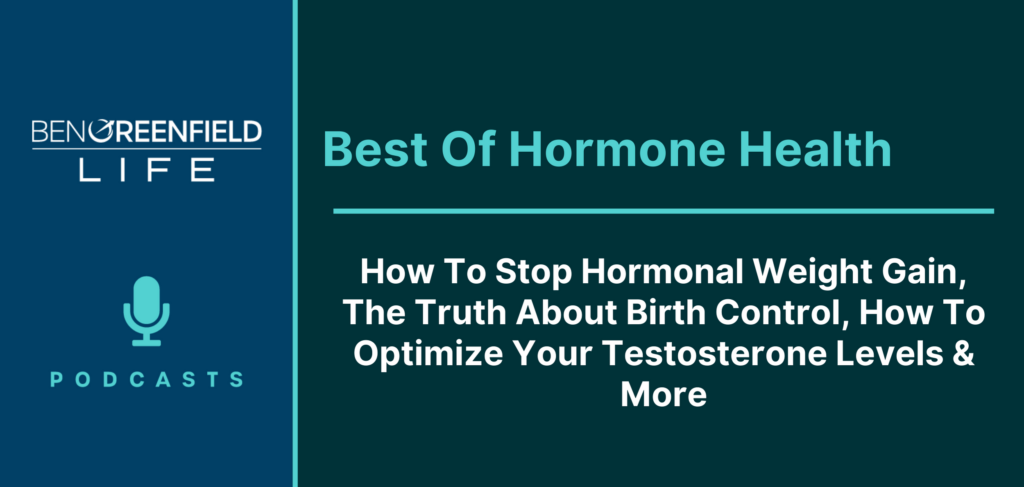
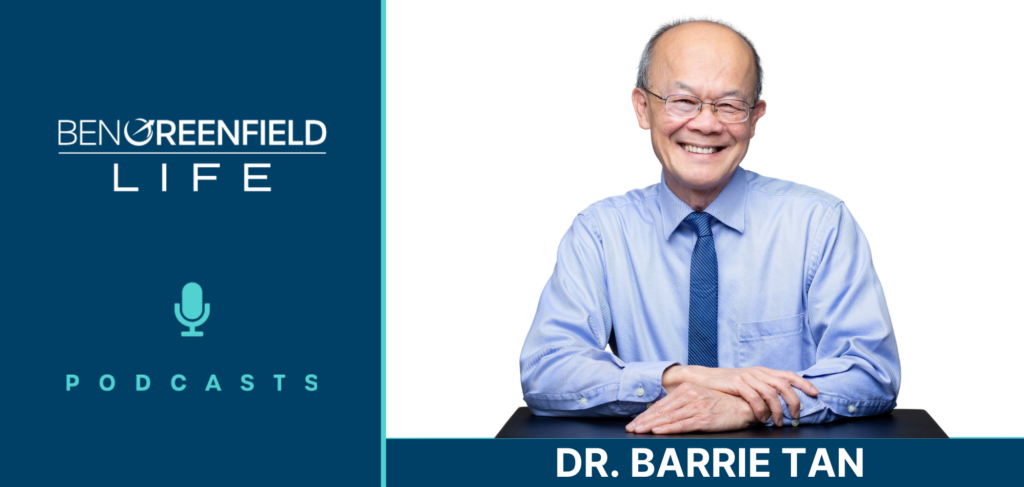

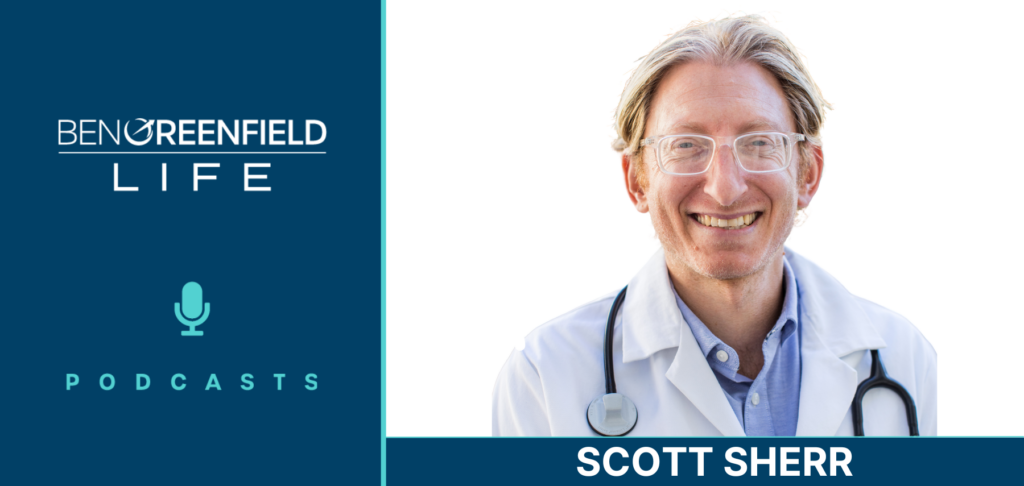
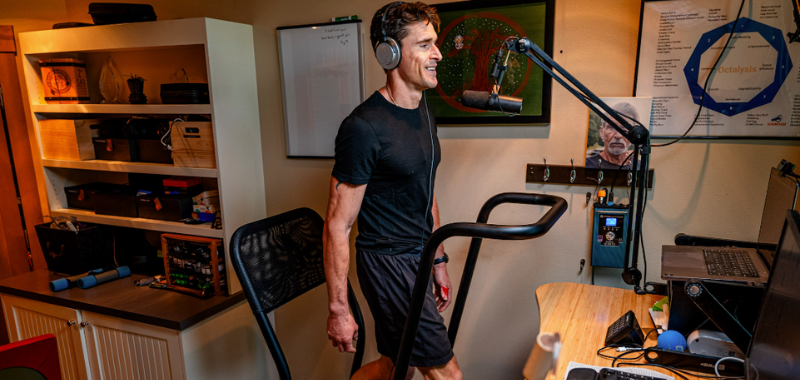

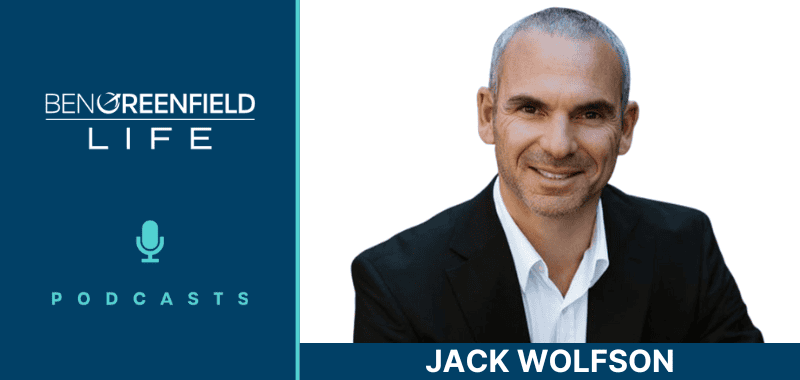


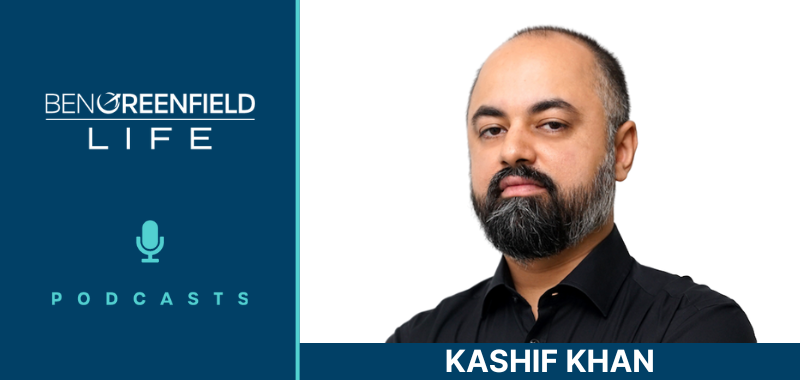
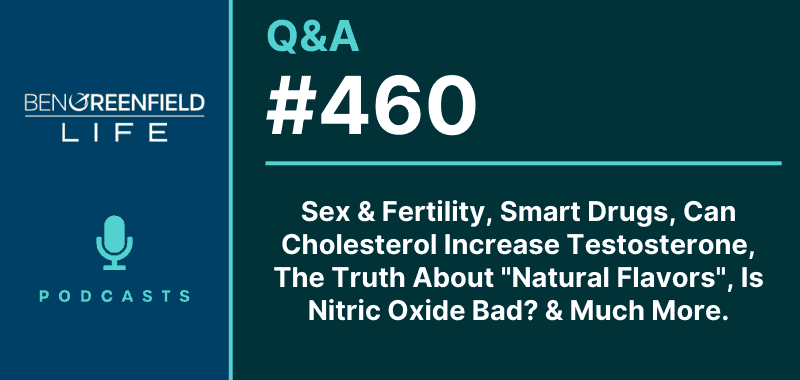
Loved both podcasts! I can’t find the book though! Where can I find it besides Amazon? I checked other obvious sellers. Is it self published?
Thanks!
Good stuff! I just want to add that modern humans ARE mostly living in a low oxygen state – I have done shallow ‘neck-breathing’ for most of my life and am only now learning how dangerous that is! Can’t wait for the book to arrive.
Great episode! Listened to part 1 on my one hour commute home, part 2 will be tomorrow on my way back to work. As a paramedic, and now paramedic educator, I find this information fascinating. Already ordered up his book, can’t wait to dive in! Thank you Ben for all you do!
You bet Philip! Thanks for your comments and for your service too!
Hi, curious if you will address ways to halt/reverse atherosclerosis. Like Ben, a recent heat CT scan identified mild calcium build up, score of 50, but for my age 46 is quite bad. Looking into ways to work this problem. Thanks
Yes, there are plenty of suggestions and strategies in my book, along with a bigger picture understanding of what causes atherosclerosis.
Thanks for the response. Book is on the way.
How was the book?
Learn anything re cac?
Igor Cummins has lots of info on ccs, statistics, what to do etc he has web site and info on you tube. As I researched, basically a clean diet, no veg oil, sugar etc., exercise can keep that number steady for the rest of your life. The calcium becomes more like scar tissue and if future ccs doesn’t continue to worsen over time, through lifestyle changes you have a much lower risk of heart attack even with the score of 50. Check him out.
Thanks, for the feedback. I’m not Ben, but pretty much have ticked off all the low hanging fruit with regards to diet and exercise…frankly shocked by the score. But looking into ways to reverse the heart CT score.
Hi Ben & Stephen
Great episode – thank you – do you know if Factor Five Leiden adversely affects heart? And should one take extra precautions? My understanding is 20% of population have this and it makes the blood stickier – it came up in a medical test
I was particularly interested when you talk about vortexing flow through heart and wondered when you stand on Energy Medicine to create energy in body? and wondered if Ben would do an Episode with Donna Eden? or Prune Harris in Uk to discuss their findings
Thanks so much
Lucy
When I quickly flex my arms bicep my heart makes a beat. Why is that?
Stephen and Ben – Thanks for such an informative podcast. I bought Stephen’s book last night after finishing the podcast and have read it already. Full of good information and after reading the afterword I am really please Stephen that you did publish the book. Although in good health and have good markers on all the tests done to date I have high blood pressure and have tried various regimes over the last 12 months to get it down (diet, supplements, exercise etc) as I do not wish to go on heart meds as both my parents now are taking an array of tablets. I will now implement the recommendations regarding blood pressure as suspect it is an imbalance with my ANS that is causing it and have booked to get my silver filings removed in case this also a contributing factor.
Hi Ben, Ive been learning about health and fitness , biohacking and so on,
but all i have is hundreds of bookmarks and i just feel stuck and overwhelmed ?
could you give me any advice on how to incorporate things , and create some structure to this journey ?
thank you
Does a traditional sauna could have the same benefits as an infrared sauna (low EMF) in preventing/repairing heart disease and failure ? or does it has to be infrared sauna ?
While traditional sauna will help you sweat to eliminate toxins and give you a hormetic stress to help increase endogenous antioxidant production, it is not infrared and will not have the same effect on water in the body that will help create the self flow mechanisms that studies show are so helpful in heart failure. You need the infrared light aspect because this wavelength of light is the most absorbed by water.
What is the difference between a ketone esther and ketone salts?
A ketone salt is a ketone bound to a mineral while a ketone ester is a ketone bound to an alcohol. Both are metabolized by the body, but the ketone salts tends to have a longer, though less potent as far as raising ketone levels, effect.